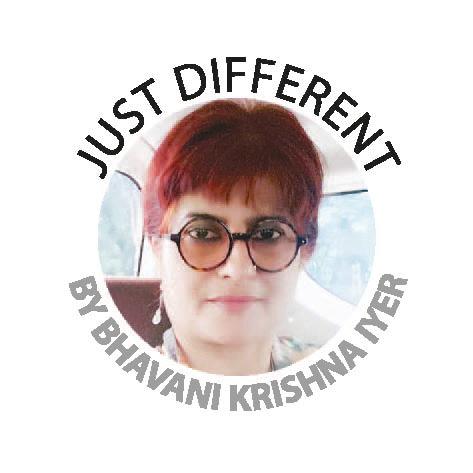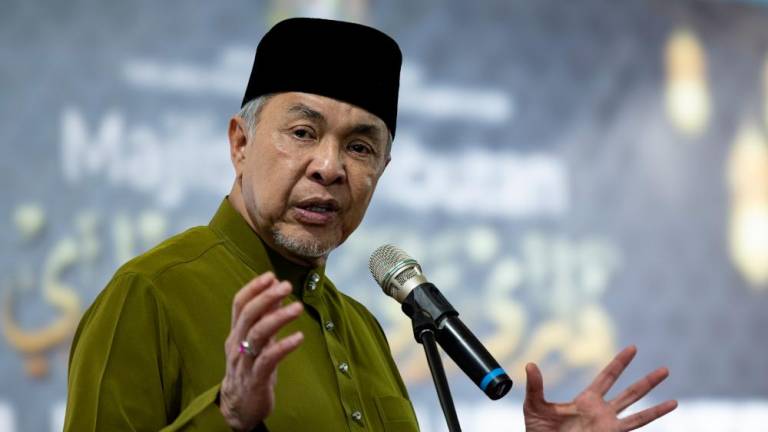WHILE the Covid-19 pandemic has been creating pandemonium in the world order, there are many other side effects or spinoffs that are raging in the background, many of them unknown and overlooked by us. In short, we are in a kind of comatose.
It is a sheer pleasure these days to just stay afloat and that is topmost in everyone’s mind, and like a blinded horse people have no inclination to be concerned about anything other than what is in the immediate path.
It is both frightening and disheartening to read about how people and places are thrown into misery and dereliction, many bereft and caught completely unaware.
Are we bracing for new temporary normal or permanent disruption to our lives, nobody knows. We are approaching the year end, many countries are bracing for another surge and at home, we are no better.
While the race to develop and distribute the vaccine is at feverish pace, we are also dealing with a pandemic of another kind in fake news. The spreading of half-truths and lies about vaccines is leading to widespread mistrust.
Meanwhile, who would have thought that Japan, which is a highly developed free-market economy, the third-largest in the world by nominal GDP and the fourth-largest by purchasing power, and is the world’s second largest developed economy, has a bigger issue to grapple with. Suicide!
Japan has long struggled with one of the highest suicide rates in the world, according to the World Health Organisation.
In 2016, Japan had a suicide mortality rate of 18.5 per 100,000 people, second only to South Korea in the Western Pacific region and almost double the annual global average of 10.6 per 100,000 people.
The country reported that in October the death from suicide was higher than Covid-19 related deaths for the whole of 2020. This is an unpleasant reality.
The monthly number of Japanese suicides rose to 2,153 in October, according to Japan’s National Police Agency. As of Friday, Japan’s total Covid-19 toll was 2,087, the health ministry said.
What is baffling is that Japan did not suffer the full-blown effect of Covid-19 and yet the number of people taking their life seems to have increased phenomenally.
The reason for Japan’s high suicide is complex and layered, long hours at work, pressure from work and school, and loneliness are among the most quoted contributing factors. The pandemic has exacerbated the problem and it is accepted as a matter of fact.
Japan also acknowledges that the number of women taking their own lives is increasing, with an 83% hike in October, compared with the same month last year.
We have read countless stories from research and surveys that correlate to the fact that women are more affected and impacted by the pandemic than men.
Looking at it from an economic perspective, there is a greater adverse impact on women because they tend to earn less than their male counterparts and they also have lesser savings compared with men.
Also, women are disproportionately more in the informal economy which is the sector known to suffer much more during this pandemic.
Incidentally, we also will not dispute that women make up bigger statistics in terms of single parenthood. With children having nowhere to go during this pandemic, the likelihood of women staying home to care for them makes women more vulnerable to stress and pressure.
In Malaysia, somewhat, mental well-being is discussed as an academic subject but I am not sure if there is enough proportionate attention given to this. The impact of the pandemic to our mental well-being is somewhat shrouded in silence and mystery.
I remember reading a recent report that some 49 foreign workers had committed suicide between March and October this year, in what is assumed to be due to stress and suffering from the effects of Covid-19. This is truly unfortunate and it is estimated the numbers could be much higher.
Suicide is not the only consequence of mental health, there are a host of other issues that push people the wrong way.
A friend whose teenage son had always been bubbly and full of life has for the last ten months become self-absorbed into gadgets and video games and prefers isolation. His parents are confused and worried about the son’s reclusion as all efforts to “revive” him have led to naught.
It is a grim picture but one that must be salvaged if we practise mindfulness and try to intervene early when you see a family member, friend or colleague going the wrong way.
One does not need to be a professional to be able to offer “first-aid”. Sometimes, just listening can save a situation.
Let us help each other to weather this nasty storm which is bound to leave a trail of destruction.
Comments: letter@thesundaily.com














